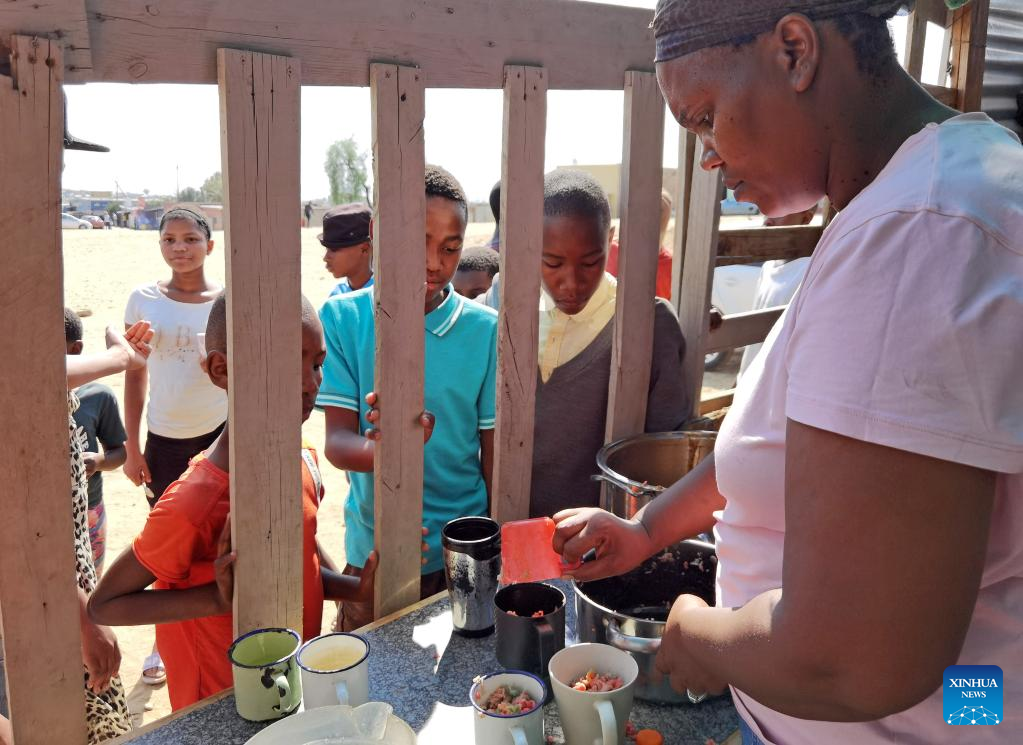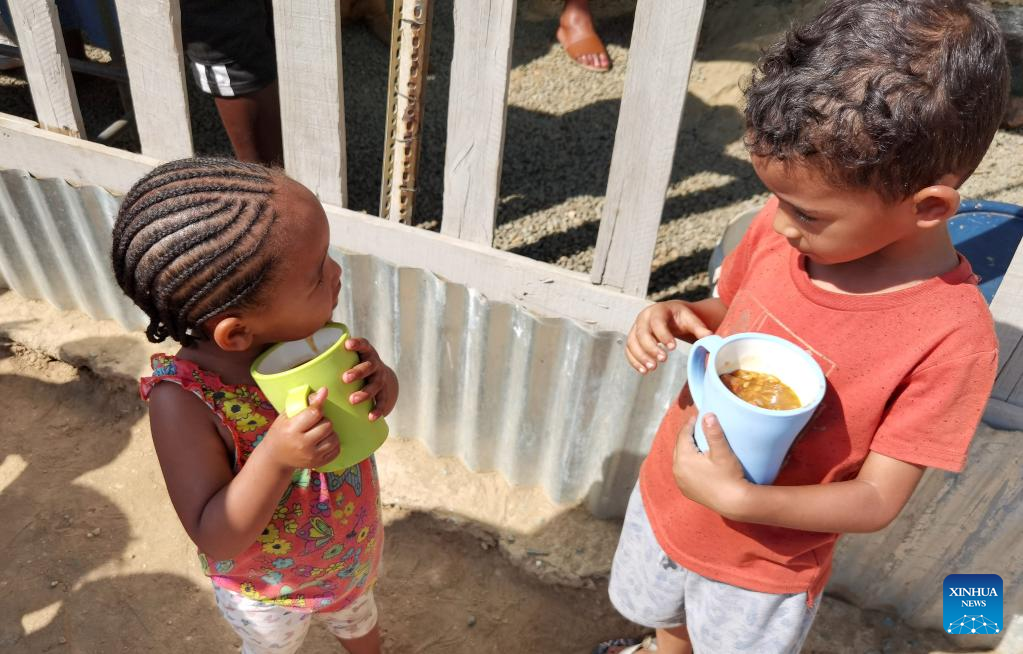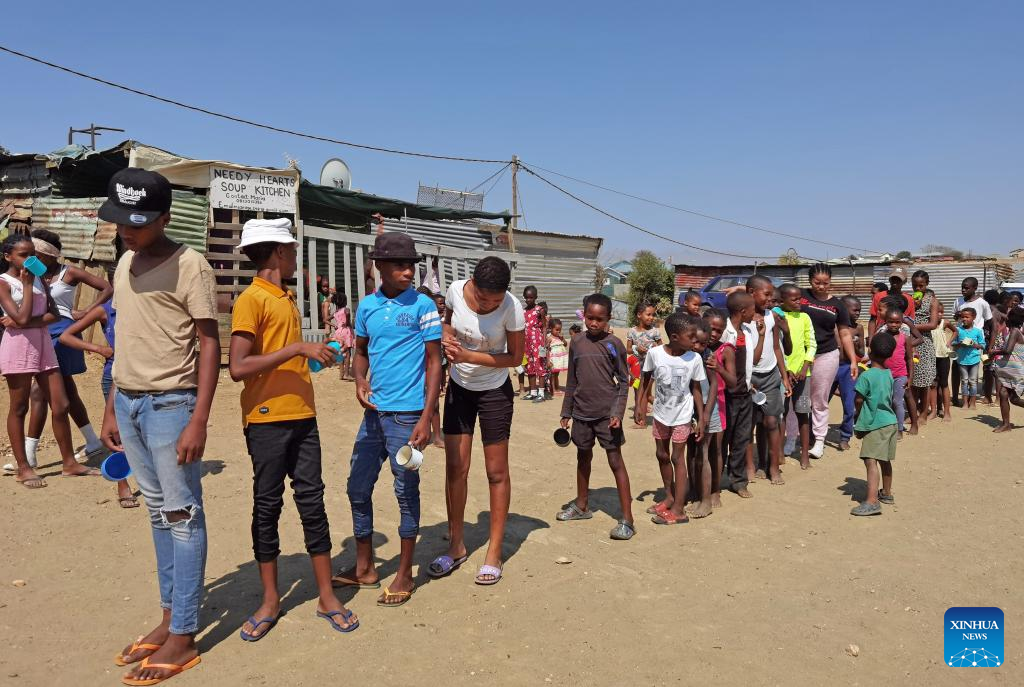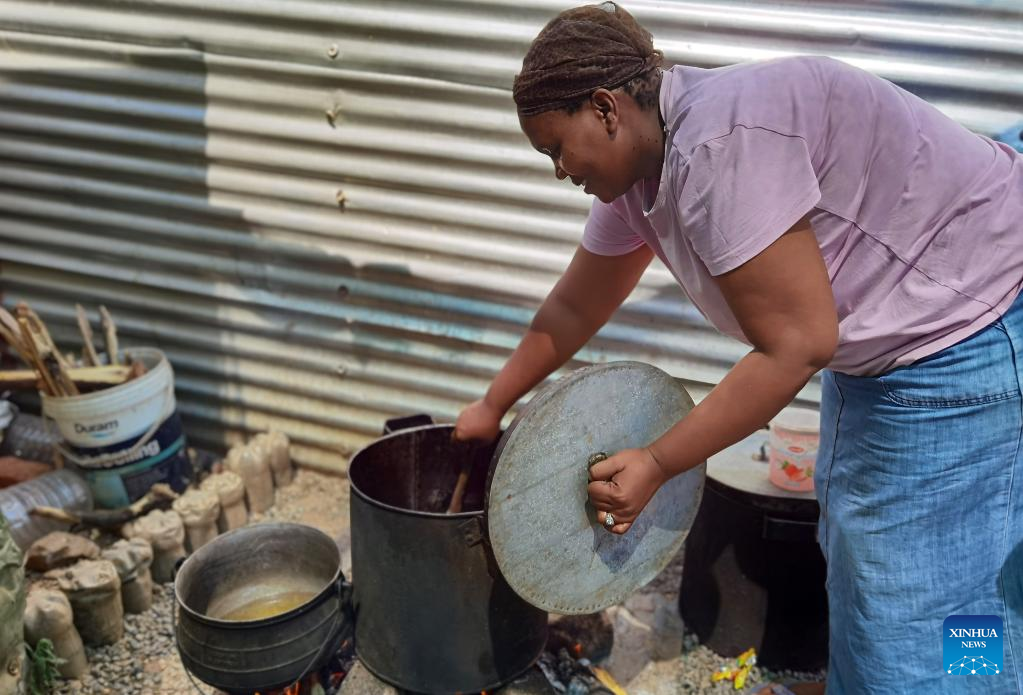
Maria Savage (R), a founder of Needy Hearts Soup Kitchen, serves food to children in Hakahana, an informal settlement in Windhoek, Namibia, on Sept. 12, 2022. (Photo by Ndalimpinga Iita/Xinhua)
WINDHOEK, Sept. 12 (Xinhua) -- From a makeshift structure and with the help of two volunteers, Maria Savage, a founder of Needy Hearts Soup Kitchen was preparing food when children from Hakahana, an informal settlement in Windhoek, the Namibian capital, began queueing.
Each holding a cup, the children hope for a simple meal: a meaty vegetable soup, pasta, and a fat cake, which is provided by the kitchen for free three days a week.
"Most children here are from children-headed households as their parents passed on at the height of COVID-19 and other diseases. But also due to the job losses, economic hardships many families face, and rampant inflation," Savage said.
Soaring food prices and income shortages make daily life a battle for many in the southwestern African nation. In 2021, the annual inflation rate accelerated to 3.6 percent from 2.2 percent recorded in 2020, mainly driven by the categories of transport, food, and non-alcoholic beverages, according to the Namibia Statistics Agency.
Growing up, Savage had days when she did not have enough to eat, which motivated her to find a better way to channel her childhood challenges to serve children. Since the soup kitchen started in 2015, it has served more than 25,000 meals to nearly 200 children, with well-wishers and companies donating food.
Cristhiaan Gaeb, 14, a beneficiary since 2020, said the soup kitchen carried him through a difficult stage, especially during COVID-19. "Sometimes the food at home is not enough, so we come here. We also bring along other children from the community, and it helps a lot," he said.
Meanwhile, the initiative incorporates social and life skills lessons to groom youngsters into disciplined members of society. "In addition to meals, we integrate dance and games, teaching them what is right and wrong," Savage said.
The soup kitchen further runs social programs for teenagers to gain valuable life etiquette. "Thus instilling discipline and keeping them off the streets from a life of crime and drugs, and by educating girls who have no one else to turn to on menstrual care," she added.
Rejoice Kamauanguue, a grade nine learner at a local school, said the soup kitchen has been instrumental to her personal growth.
"With the meal offered, I can complete my homework on a full stomach because I concentrate better than before. But I also learn much more, which I share with others," she said.
Despite the positive impact made, some challenges persist. The food is currently prepared on an open fire. The initiative also highly depends on donations from locals. "However, these are not always guaranteed, sometimes I dig into my savings to feed the children. We also require a big stove to reach out to more children," Savage explained.
Savage is also rethinking strategies on how to help the children better.
"The dream is to fuse provision of meals with regular self-development programs for kids across all ages, to nurture their bodies with nutrition, and hearts with love and care," she said.
Nearly 500,000 people of Namibia's estimated 2.5 million population live in informal settlements, official data show. ■

Children hold cups with food served at Needy Hearts Soup Kitchen in Hakahana, an informal settlement in Windhoek, Namibia, on Sept. 12, 2022. (Photo by Ndalimpinga Iita/Xinhua)

Children line up to receive food at Needy Hearts Soup Kitchen in Hakahana, an informal settlement in Windhoek, Namibia, on Sept. 12, 2022. (Photo by Ndalimpinga Iita/Xinhua)

Maria Savage, a founder of Needy Hearts Soup Kitchen, prepares food in Hakahana, an informal settlement in Windhoek, Namibia, on Sept. 12, 2022. (Photo by Ndalimpinga Iita/Xinhua)
